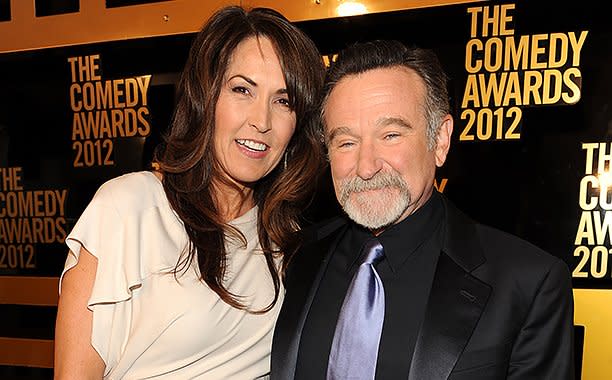Robin Williams' widow pens essay about his brain disorder, final months

Robin Williams’ widow has published a heart-wrenching essay about the actor’s final months, during which he battled myriad symptoms and struggled to obtain an accurate diagnosis of the brain disorder that ultimately drove him to take his own life.
Susan Schneider Williams’ essay “The Terrorist Inside My Husband’s Brain,” published in the medical journal Neurology, chronicles how her husband experienced “a firestorm of symptoms” in the 10 months before his death, including heartburn, poor sense of smell, insomnia, paranoia, delusions, looping, and high cortisol levels.
“My husband was trapped in the twisted architecture of his neurons and no matter what I did I could not pull him out,” she writes.
Doctors struggled to pinpoint what was wrong with Williams, and he was diagnosed with Parkinson’s disease in May 2014, less than three months before his death. However, an autopsy revealed that he suffered from Lewy body dementia, a disease frequently confused with but distinct from Parkinson’s.
“I have since learned that people with LBD who are highly intelligent may appear to be okay for longer initially, but then, it is as though the dam suddenly breaks and they cannot hold it back anymore,” Susan Schneider Williams writes. “In Robin’s case, on top of being a genius, he was a Julliard-trained actor. I will never know the true depth of his suffering, nor just how hard he was fighting. But from where I stood, I saw the bravest man in the world playing the hardest role of his life.”
She concludes her essay by calling on the medical community to remain vigilant in combating brain disease.
“Hopefully from this sharing of our experience you will be inspired to turn Robin’s suffering into something meaningful through your work and wisdom,” she writes. “It is my belief that when healing comes out of Robin’s experience, he will not have battled and died in vain. You are uniquely positioned to help with this.”
Read Susan Schneider Williams’ full essay in Neurology.
